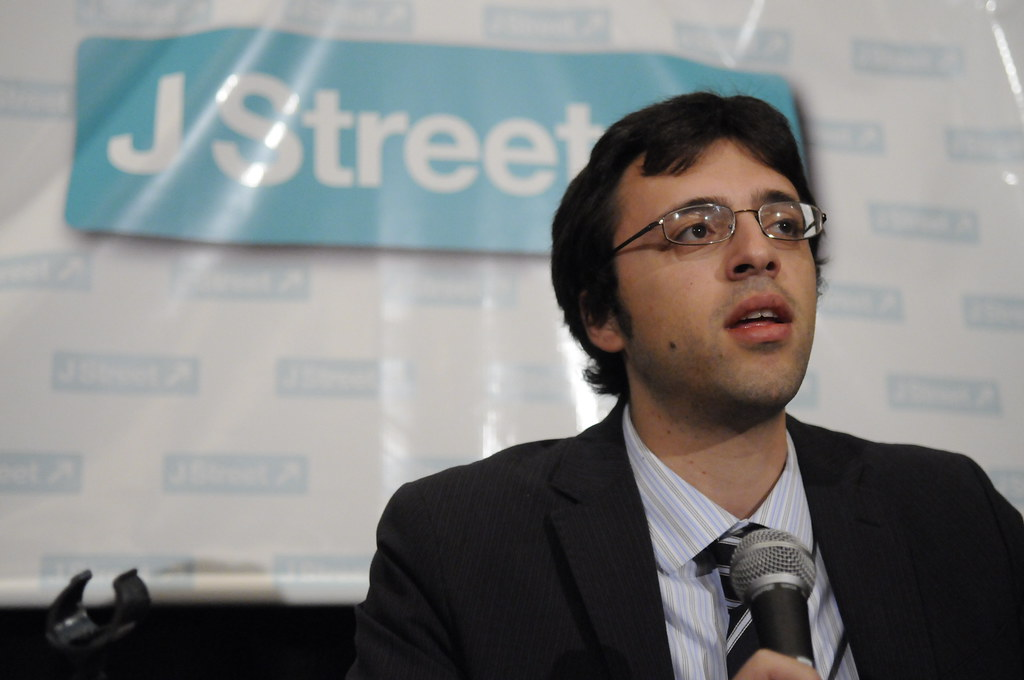The Forward reports that J Street has dropped its endorsement of Jamaal Bowman after concluding that his recent rhetorical framings and practices around Israel (regular "genocide" charges; meeting with Norman Finkelstein) "crossed the line" and simply diverged too far from what the liberal lobby group was willing to accept. Bowman faces a challenging primary fight against Westchester County Executive George Latimer.
It seems like just yesterday that I was gaming out the fallout from Bowman's contretemps with the DSA over him being perceived as too close to Israel ("too close", here, meant "visiting it with J Street" and "voting for Iron Dome funding"). How the world turns.
But I don't actually have much to say on this development. The one observation I will make is that this is, I think the symbolic starting gun for a new political reality for J Street where it's going to face elected adversaries to its left.
Obviously, given where it positioned itself on the Israel spectrum, J Street has from its inception faced a pinch on either side -- AIPAC-y sorts attacking it from the right, JVPers from the left. But for most of its existence it has been somewhat insulated from the left flank attacks insofar as J Street is primarily a political lobby and left-ward critics of its positioned had little in the way of presence amongst elected officials. Because of that, J Street's strategy was basically to try to consolidate the progressive electorate starting at the most liberal Democrat (whom it basically took for granted as a J Street sympathizer) and then moving progressively towards the center of the party, where the actual battles would be fought. The abortive endorsement of Rashida Tlaib was part of this -- it couldn't really fathom that amongst elected Democrats there might be anyone who'd be a poor fit by virtue of being too left-wing or pro-Palestinian, even as it quickly became clear that Tlaib had genuine and material differences in policy orientation over Israel than what J Street was pushing.
Tlaib may have for a while been viewed as an anomaly, but as any good Kuhnian can tell you enough anomalies eventually compels a paradigm shift, and so too here. I observed back in 2022 that AIPAC's victories in Democratic primaries against more J Street aligned candidates perhaps counterintuitively would increase the appeal of more radical left positions on Israel amongst progressive Democrats (read that post for the logic), and while I think the shift we're seeing here is determined by a lot more than that, it goes to the point that J Street is acknowledging here a new era where there will be elected Democrats who are not mission-aligned with J Street from the left as well as the right, and it's doing so from a position of at least some vulnerability. This is a new world for J Street, and it has to figure out how to reconsolidate a base of support in the midst of a move from, functionally, being one pole of a (within the Democratic Party) bipolar struggle with AIPAC to sitting in the mushy middle taking flak from either side.
This doesn't mean that J Street lacks a constituency amongst Democrats -- there are I think still plenty of Democrats in the liberal two-state bucket -- but consolidating them is maybe a little less straightforward than it was when they had the left edge of the elected-branch of the party basically locked down. It will be an adjustment, and it'll be interesting to see how J Street adapts to it. There are ways to do this -- even ways to do this that can yield greater successes (e.g., by a "good cop/bad cop" play where they suddenly look a lot more attractive compared to the wolves lurking just over the horizon) -- but at the very least, J Street is going to need to develop some set of tactics for dealing with more left-wing rivals who it has to this point largely been able to ignore in the political realm.

No comments:
Post a Comment